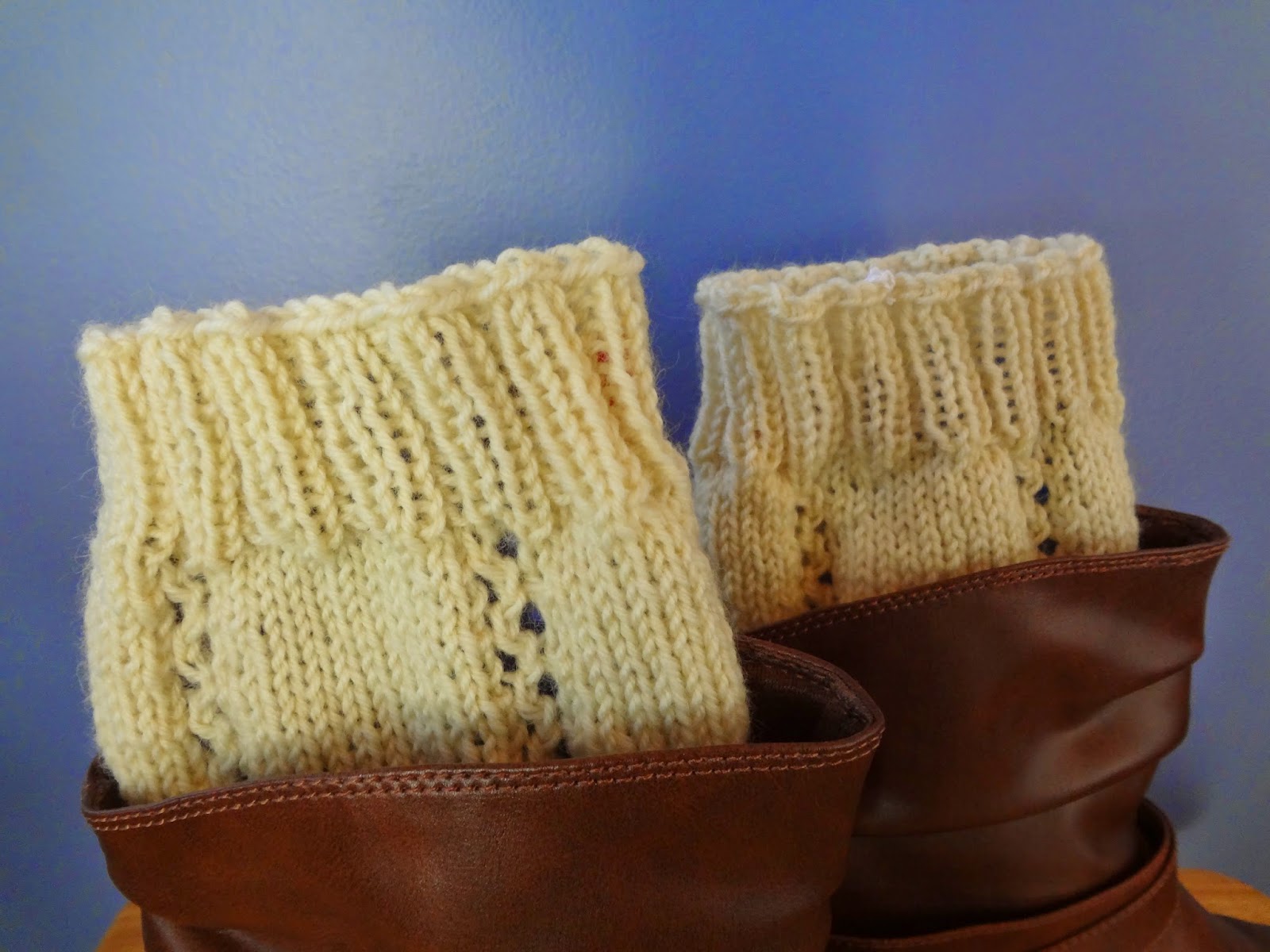Here is another pattern I cooked up for boot cuffs. It features a simple cable pattern that repeats to make four cables on each boot cuff. Enjoy!
Materials:
Size 6 US circular needles or DPNs
Worsted weight yarn. I used LB Collection® Organic Wool Yarn (100% organic wool), the color is Redwood (1 skein)
Cable needle
Needle for weaving in ends
Stitch Markers (4)
Gauge:
4 sts = 1"
Finished Measurements:
Circumference: approximately 9" unstretched
Length: approximately 6 3/4"
Please message me if you see mistakes or need clarification! Happy knitting!
Needle for weaving in ends
Stitch Markers (4)
Gauge:
4 sts = 1"
Finished Measurements:
Circumference: approximately 9" unstretched
Length: approximately 6 3/4"
Cable pattern:
C4B: place two sts onto cable needle and hold in back, knit the next two stitches, knit the two stitches from the cable needle
Instructions (make two):
CO 48 stitches
(if using DPNs, divide stitches between 4 needles, 12 stitches on each needle)
Work in K2 P2 ribbing for 11 rows
Pattern:
Row 1: *K2, P2, K4. P2, K2, place marker, repeat from * until end of row
Rows 2 and 3: *K2, P2, K4, P2, K2, slip marker, repeat from * until end of row
Row 4: *K2, P2, C4B, P2, K2, slip maker, repeat from * until end of row
Repeat rows 1-4 four times, 20 rows in pattern total (not counting ribbing)
Work in K2 P2 ribbing for 9 more rows
Bind off in knit
Weave in ends
Tips:
When using circular needles with stitch markers, use a different colored stitch marker at the beginning of the round, or tie a small piece of yarn to it to distinguish it from the other stitch markers. That way you won't loose track of which row you are working!
Also, if you are using DPNs, use a stitch marker to mark the beginning of the row, but there is no need to use stitch markers between sections because they are already divided for you!
To switch up the pattern a bit, use C4F (Slip two stitches onto cable needle, hold in front. Knit the next two stitches, then knit the stitches on the cable needle) instead of C4B on the second boot cuff so that the cable patterns twist opposite directions.
.JPG)
.JPG)
.JPG)



































